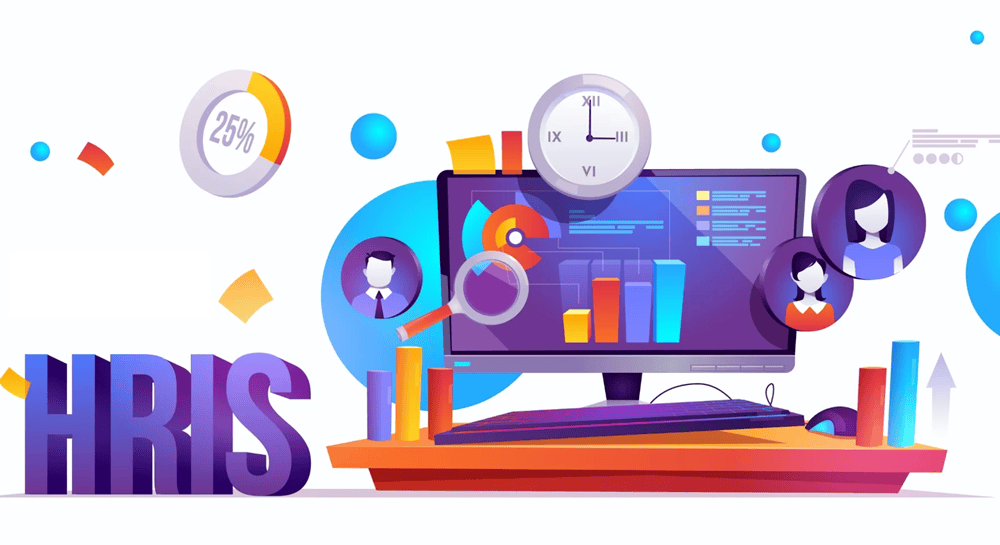In the dynamic landscape of modern business, Human Resource Information Systems (HRIS) play a pivotal role in streamlining HR operations, enhancing efficiency, and maximizing organizational performance. As businesses evolve and adapt to changing market demands, the need for robust HRIS solutions becomes increasingly paramount. In this comprehensive guide, we delve into the various types of HRIS, their functionalities, and the benefits they offer to organizations.
Understanding HRIS
HRIS, also known as Human Resource Management Systems (HRMS) or Human Capital Management (HCM) systems, are integrated software solutions designed to automate and streamline HR processes. These systems encompass a wide range of functionalities, including but not limited to:
- Employee Data Management: HRIS enables organizations to centralize employee information, including personal details, employment history, performance evaluations, and more, in a secure and accessible database.
- Recruitment and Onboarding: From job posting and applicant tracking to onboarding new hires, HRIS streamlines the entire recruitment process, reducing manual tasks and improving the candidate experience.
- Time and Attendance Tracking: HRIS automates timekeeping processes, allowing employees to clock in and out electronically, while providing managers with real-time visibility into attendance data.
- Payroll Management: With built-in payroll modules, HRIS simplifies payroll processing, ensuring accuracy and compliance with tax regulations, while also facilitating direct deposits and generating payroll reports.
- Performance Management: HRIS facilitates performance appraisal processes, enabling managers to set goals, track progress, provide feedback, and conduct performance reviews seamlessly.
- Training and Development: Through learning management features, HRIS allows organizations to deliver and track employee training programs, fostering continuous learning and skill development.
Types of HRIS
- On-Premises HRIS
On-premises HRIS solutions are deployed locally on an organization’s servers and infrastructure. These systems offer complete control over data and customization options, making them suitable for organizations with specific security and compliance requirements. However, they often require significant upfront investment in hardware, software licenses, and IT resources for maintenance and updates. - Cloud-Based HRIS
Cloud-based HRIS, also referred to as Software-as-a-Service (SaaS) solutions, are hosted on remote servers and accessed through web browsers or mobile apps. These systems offer scalability, flexibility, and cost-effectiveness, as they eliminate the need for on-site infrastructure and maintenance. Cloud-based HRIS providers handle software updates, security patches, and data backups, allowing organizations to focus on their core business activities. - Hybrid HRIS
Hybrid HRIS solutions combine elements of both on-premises and cloud-based systems, offering organizations the flexibility to leverage the benefits of both deployment models. Hybrid HRIS allow for seamless integration between on-premises applications and cloud-based services, providing greater adaptability and scalability to meet evolving business needs. - Open-Source HRIS
Open-source HRIS solutions are built on publicly accessible codebases, allowing organizations to modify and customize the software according to their unique requirements. These systems offer flexibility and cost savings, as they eliminate licensing fees associated with proprietary software. However, they may require specialized technical expertise for implementation, customization, and ongoing support.
Benefits of HRIS
Implementing a robust HRIS offers numerous benefits to organizations, including:
- Increased Efficiency: HRIS automates repetitive tasks, reduces manual paperwork, and streamlines HR processes, allowing HR professionals to focus on strategic initiatives and value-added activities.
- Enhanced Data Accuracy: By centralizing employee data and eliminating redundant data entry, HRIS improves data accuracy and integrity, ensuring compliance with regulatory requirements and reducing the risk of errors.
- Improved Decision-Making: HRIS provides real-time access to critical HR metrics and analytics, enabling informed decision-making based on actionable insights into workforce trends, performance indicators, and employee engagement levels.
- Enhanced Employee Experience: From self-service portals and mobile apps to personalized training and development plans, HRIS enhances the overall employee experience by empowering employees with convenient access to information and resources.
- Cost Savings: By automating manual processes, reducing administrative overhead, and optimizing resource allocation, HRIS helps organizations achieve cost savings and improve overall operational efficiency.
Conclusion
In conclusion, Human Resource Information Systems (HRIS) play a vital role in modern organizations by streamlining HR processes, enhancing efficiency, and enabling data-driven decision-making. Whether through on-premises, cloud-based, hybrid, or open-source solutions, implementing a robust HRIS can yield significant benefits, from increased productivity and cost savings to improved employee engagement and organizational performance. As businesses continue to prioritize digital transformation and workforce optimization, investing in the right HRIS becomes essential for long-term success.





